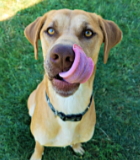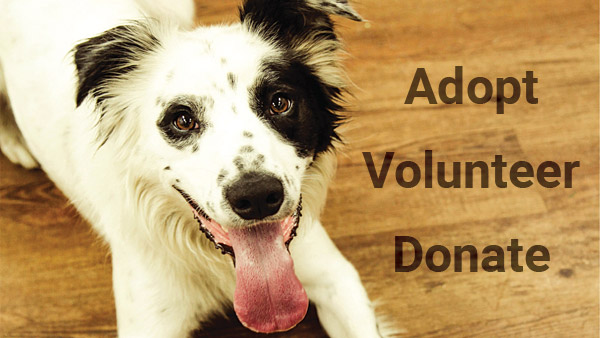Roundworms In Puppies
Puppies bring laughter, joy, and kisses into our lives. In addition to all of these positive things, puppies usually also come with intestinal parasites. When you adopt a puppy from Mackenzie’s Animal Sanctuary or other shelters, the puppy should have already received a few doses of a broad spectrum dewormer. Then why might these puppies still have worms when they are adopted?
Let’s start by explaining the interesting lifecycle of roundworms. The lifecycle begins when eggs are excreted in feces. After a few weeks, the eggs become infectious in the environment if the feces is not properly disposed of. Once this infectious egg is ingested by a dog (by licking their paws after walking through the infected soil) the larva hatch from the egg and burrow out of the dog’s gastrointestinal tract. The larva will then invade the dog’s lungs and liver and can stay dormant in these organs for extended periods of time. Once these larva are coughed up and swallowed by the dog, they then develop into adult worms in the gastrointestinal tract. These adult worms begin to mate and will produce new eggs. Thus, the dog will begin shedding eggs into their feces.
Almost all puppies become infected by roundworms in utero and/or while nursing. During pregnancy, the mother dog’s encysted roundworm larva will travel to her uterus. This results in roundworm infections of the puppies. The larva then encyst in the puppies’ organs and the lifecycle will continue.
So why doesn’t the broad spectrum dewormer immediately kill all of the roundworms in the mom and puppies? Broad spectrum dewormers commonly used for roundworms are unable to attack larva encysted in organs outside of the gastrointestinal tract. The dewormer is only able to kill the worms that are within the gastrointestinal tract. Therefore, repeated doses or dewormer are needed to kill the next round of larva that enter the gastrointestinal tract as the encysted larva continue to hatch in puppies.
The good news is that fresh feces of a roundworm infected dog is not immediately contagious in the environment! It takes weeks for the larva in feces to become infectious. Therefore, as long as feces is disposed of promptly and general hygiene practices are followed, the likelihood of continued re-infection of roundworms in a newly adopted puppy is very low.











































